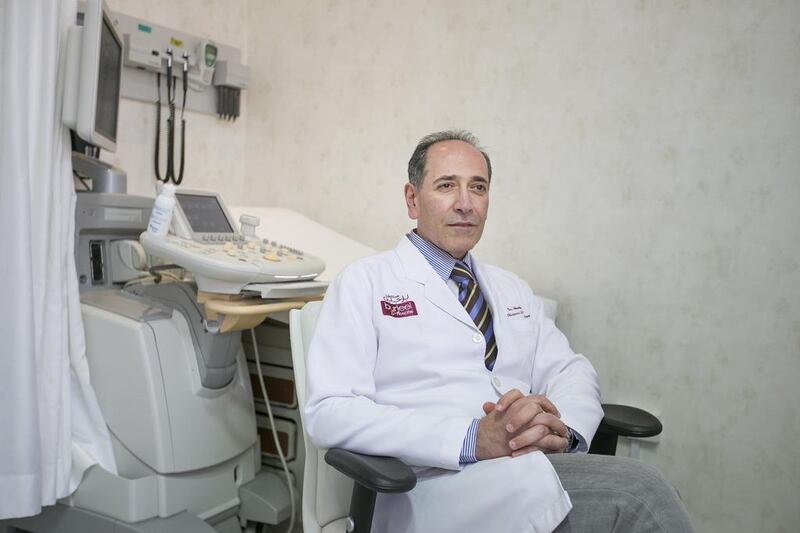ABU DHABI // Doctors say they are being put in an uncomfortable position when faced with patients with a possible sexually transmitted disease as they may have to notify authorities.
Some infectious diseases have to be reported to the local health authority and experts say many of those suffering symptoms are not seeking professional help because they fear the repercussions.
“Everyone is scared and say ‘are you going to report me if it is positive?’ and ‘Are they going to deport me if it is positive?’,” said Dr Rosalie Sant, a specialist obstetrician and gynaecologist at Primavera Medical Centre, in Dubai Healthcare City.
Some of these fears are founded, said Dr Sant. Certain infectious diseases like HIV and AIDS have to be reported to the authorities.
The UAE has a policy of deporting HIV-positive expatriates.
“We cannot break the law,” said Dr Sant. “That puts us in an awkward position as well.
“But going to the doctor and getting treated is much more important than anything.”
Chronic pelvic pain and infertility are just a few of the possible consequences of an untreated STD, said Dr Sant.
Dr Yuliya Burmagina, a specialist in obstetrics and gynaecology at Femiclinic, at Dubai Healthcare City, said the law means an ethical grey area for some doctors.
“We all know that according to the federal law in UAE it is obligatory to report certain STD diseases like HIV and Hepatitis B,” said Dr Burmagina.
“If you are found to have, lets say, HIV you will be deported from the country as a result of compulsory reporting to the health authorities
“This makes universal screening for those STDs very complicated as long as the confidentiality is difficult to be respected in all the cases.”
Many patients fear being judged, she said, while some doctors lack the sensitivity towards patients that need an STD test.
“It is the negative attitude or people around that may be an obstacle to diagnose the diseases,” she said. “It is important to respect confidentiality in such cases so not to affect the patient’s future life and not to repel patients from timely diagnosis and appropriate treatment.”
Dr Nazura Siddiqi, a specialist gynecologist at LLH Hospital in Musaffah, said many of those who fear they have a sexually transmitted disease are reluctant to seek help.
“Everyone is afraid to get tested for sexually transmitted infections, especially HIV, as they are scared they might be infected,” she said. “We need to take a special informed consent before we test people for HIV or Hepatitis B.
“I know if I suspect herpes, for example, and I ask for testing then the patients get very anxious. In some it was because they were scared of infecting their children and in others because of risk to foetus if they became pregnant.
“The unmarried were worried of risk to future partners while others were worried that the reports would show in health screening at work.”
Dr Rami Mahafza, a specialist in obstetrics and gynaecologist at Canadian Specialist Hospital, said the stigma of STDs can also mean doctors are wary of advising patients to be tested.
“The problem is more with the doctors as this is very embarrassing in our community and it is not easy for us to ask the patient to do an STD screening,” he said.
If left untreated, STDs can have significant long-term consequences on both sexes such as sterility.
Women who are pregnant should also be aware that untreated STDs can cause complications for their newborn.
Dr Sant said STDs can be a tricky subject to discuss and often patients are embarrassed when discussing symptoms with a doctor.
“People are embarrassed,” she said. “People are made to feel embarrassed by the clinicians. So it is much the clinicians’ problem as it is the patients’ problem.”
There is also a misconception that STDs are a young person’s disease, said Dr Sant.
“All ages can be affected depending on exposure. In the UK, it is the teenagers and those in their early 20s that are screened for STDs but here I have seen more in women aged 40 plus than younger people.”
jbell@thenational.ae






